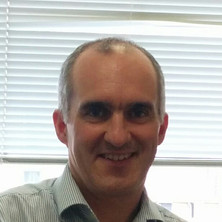
Overview
Background
I studied Technical Mathematics at the Vienna University of Technology. I also earned a Master's degree in Law and I finished the first ("non-clinical") part of Medical Studies at the University of Vienna. I earned my PhD in Applied Mathematics at the University of Vienna in 2007. My PhD advisor was Christian Schmeiser, my co-advisor was Peter Markowich. I spent several months at the University of Buenos Aires working with C. Lederman and at the ENS-Paris rue d'Ulm in the group of B. Perthame.
Before coming to UQ, I held post-doc positions at the Wolfgang Pauli Insitute (Vienna), University of Vienna and the Austrian Academy of Sciences (RICAM). In 2013 I won an Erwin Schrödinger Fellowship of the Austrian Science Fund (FWF). I was a post-doc researcher in the group of Alex Mogilner first at UC Davis, then at the Courant Institute of Math. Sciences (New York University).
I moved to UQ in Dec. 2016. More recently, in 2024, I spent 4 months at the department of Mathemetics of the U. of Heidelberg as a visiting scientist.
Availability
- Dr Dietmar Oelz is:
- Available for supervision
- Media expert
Fields of research
Qualifications
- Doctor of Philosophy, International University Vienna
Research interests
-
Mathematical and Computational Biology
Cell Biology, Collective Behaviour, Multi-scale Modelling, mechanobiology of cells and tissues, cell movement, intra-cellular transport, cytoskeleton dynamics, actomyosin contractility
-
Applied Mathematics
perturbation methods, multi-scale modelling, numerical schemes, stochastic modelling
-
Scientific computing
Brownian dynamics simulations, numerics of PDEs, computational methods in continuum mechanics
-
Partial Differential Equations
-
Continuum mechanics (Fluids, solids)
-
Dynamical systems, discrete particle models
-
Fractional differential equations
Research impacts
Biological systems integrate a multitude of processes on various spatial and temporal scales. The output of biological processes is typically robust to a range of random perturbations. Mathematics is an outstanding tool to investigate such cooperative mechanisms on the molecular level which can hardly be assessed experimentally.
Building on a sound applied mathematics and partial differential equations (PDE) background, the area of my research is to identify and describe biological processes by formulating mathematical models, to evaluate them using numerical simulation and mathematical analysis and to validate such models against experimental data.
A ubiquitous example for a highly complex biological system are cells. They use cytoskeletons composed of long fibers on the micron length scale to sustain their shape mechanically. Molecular processes on the nanoscale which change the structure of these fibers as well as force generation by motor proteins promote remodeling of cell shape, cell migration and intracellular transport. This is the basis for vital processes such as muscle contraction, cell division, immune system response, wound healing and embryogenesis, and it plays a crucial role in pathological processes such as tumor metastasis and neurodegenerative deseases.
The central question of my research is: how do proteins on the nanoscale and larger protein complexes on the micronscale cooperate in living cells to promote cell movement, shape changes, force generation and intra- cellular transport? This type of research contributes to the development of new techniques in bioengineering and of new therapeutic approaches in clinical fields such as oncology and immunology.
One important aspect of biological mechanisms is insensitivity to random perturbations. Hence mathe- matical models on the microscopic level are necessarily stochastic and I employ mathematical analysis and numerical simulation such as Brownian Dynamics to analyze the sensitivity of models and to identify robust characteristics of a systems output. Especially the smallness of the molecular length scales interferes with experimental imaging techniques to assess these biological processes in vivo. For this reason an essential aspect of my research is to use asymptotic analysis to derive and justify macroscopic coarse-grained models based on thoroughly formulated microscopic models. In general this process yields partial differential equations such as reaction-drift-diffusion models and fluid dynamics models. I analyze these models, which often exhibit amazingly rich mathematical properties, analytically and by numerical simulation in order to relate the experimentally measurable macroscopic features to the microscopic dynamics of interest.
Funding
Past funding
Supervision
Availability
- Dr Dietmar Oelz is:
- Available for supervision
Before you email them, read our advice on how to contact a supervisor.
Supervision history
Current supervision
-
Doctor Philosophy
Computational Biomechanical Modelling and simulation of cellular migration in heterogeneous 3D environment
Principal Advisor
Other advisors: Associate Professor Samantha Stehbens
-
Doctor Philosophy
Cellular morphogenesis and cytoskeleton anisotropy.
Principal Advisor
-
Doctor Philosophy
Mechanochemical feedback mechanisms in cell-migration and biological pattern formation
Principal Advisor
Other advisors: Associate Professor Samantha Stehbens, Dr Zoltan Neufeld
-
Doctor Philosophy
Fractional Differential Equations in Mathematical Biology - modelling and simulation.
Principal Advisor
Completed supervision
-
2023
Doctor Philosophy
A study of mathematical models for collective cell migration and axonal transport
Principal Advisor
Other advisors: Professor Alpha Yap, Dr Zoltan Neufeld
-
2021
Doctor Philosophy
Existence, ergodic properties, and number of random invariant measures for multidimensional quenched random dynamical systems
Associate Advisor
Other advisors: Associate Professor Cecilia Gonzalez Tokman
Media
Enquiries
Contact Dr Dietmar Oelz directly for media enquiries about:
- Mathematical Biology
- Modelling and Simulation
Need help?
For help with finding experts, story ideas and media enquiries, contact our Media team:
